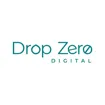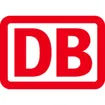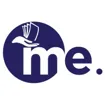Remote Jobs in EMEA

Deel
- From: EMEA (Full Remote)
- Full time

Drop Zero Digital
- From: EMEA (Full Remote)
- Part time
- Mid-level (2-5 years)

Polygon Technology
- From: EMEA (Full Remote)
- Full time

GitLab
- From: North America, EMEA (Full Remote)
- Full time

Canonical
- From: North America, EMEA (Full Remote)
- Full time

Eaton
- From: EMEA (Full Remote)
- Full time

Deel
- From: EMEA (Full Remote)
- Full time

GitLab
- From: North America, EMEA (Full Remote)
- Full time

Boundless Life
- From: Anywhere (Full Remote)
- Fixed term
- Senior (5-10 years)
- 33 - 38K

capSpire
- From: EMEA (Full Remote)
- Full time

Canary Technologies
- From: EMEA, Spain (Full Remote)
- Full time

Tabby
- From: Anywhere (Full Remote)
- Full time

Canonical
- From: North America, EMEA (Full Remote)
- Full time

OpenZeppelin
- From: North America, EMEA (Full Remote)
- Full time

Canonical
- From: North America, EMEA (Full Remote)
- Full time

Jibble
- From: Anywhere (Full Remote)
- Full time

Leetify
- From: North America, EMEA (Full Remote)
- Full time

GitLab
- From: North America, EMEA (Full Remote)
- Full time

GitLab
- From: North America, EMEA (Full Remote)
- Full time

WebFX
- From: Anywhere (Full Remote)
- Full time

Canonical
- From: EMEA, APAC (Full Remote)
- Full time

iLogos Game Studios
- From: Anywhere (Full Remote)
- Full time

Alpaca
- From: Anywhere (Full Remote)
- Full time

ConsenSys
- From: United States, EMEA (Full Remote)
- Full time

5CA
- From: EMEA (Full Remote)
- Full time

Canonical
- From: EMEA (Full Remote)
- Full time

Boundless Life
- From: Anywhere (Full Remote)
- Full time
- Expert & Leadership (>10 years)

Customer.io
- From: North America, EMEA (Full Remote)
- Full time

ConsenSys
- From: United States, EMEA (Full Remote)
- Full time

DB Engineering & Consulting
- From: EMEA (Full Remote)
- Full time

Layer7.mx
- From: Anywhere (Full Remote)
- Part time

Layer7.mx
- From: Anywhere (Full Remote)
- Full time

AlifCloud IT Consulting Pvt. Ltd.
- From: Anywhere (Full Remote)
- Full time

EnthuZiastic
- From: Anywhere (Full Remote)
- Freelance

BruntWork
- From: Anywhere (Full Remote)
- Full time

Horizons
- From: EMEA (Full Remote)
- Full time

BruntWork
- From: Anywhere (Full Remote)
- Full time

meCash
- From: Anywhere (Full Remote)
- Full time

VirtuallyinCredible
- From: Anywhere (Full Remote)
- Full time

Hebron Enterprises, Inc.
- From: Anywhere (Full Remote)
- Full time

BruntWork
- From: Anywhere (Full Remote)
- Part time

BruntWork
- From: Anywhere (Full Remote)
- Freelance

IDBC Creative Solutions
- From: Anywhere (Full Remote)
- Full time

BruntWork
- From: Anywhere (Full Remote)
- Freelance

Sapiens Development
- From: Anywhere (Full Remote)
- Full time

Runtalent
- From: Anywhere (Full Remote)
- Full time

Sporty Group
- From: Anywhere (Full Remote)
- Full time

BruntWork
- From: Anywhere (Full Remote)
- Freelance

Testlio
- From: EMEA (Full Remote)
- Full time
- Mid-level (2-5 years)

DataCamp
- From: EMEA (Full Remote)
- Full time
